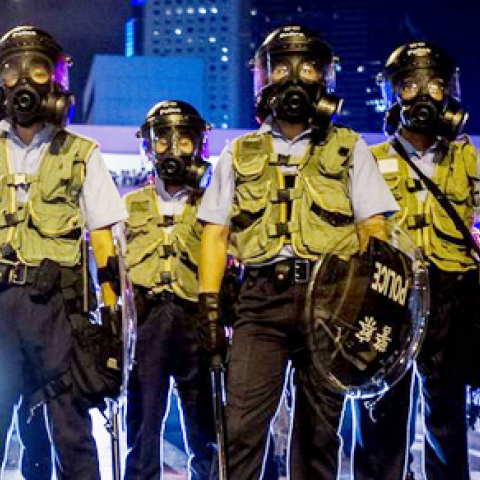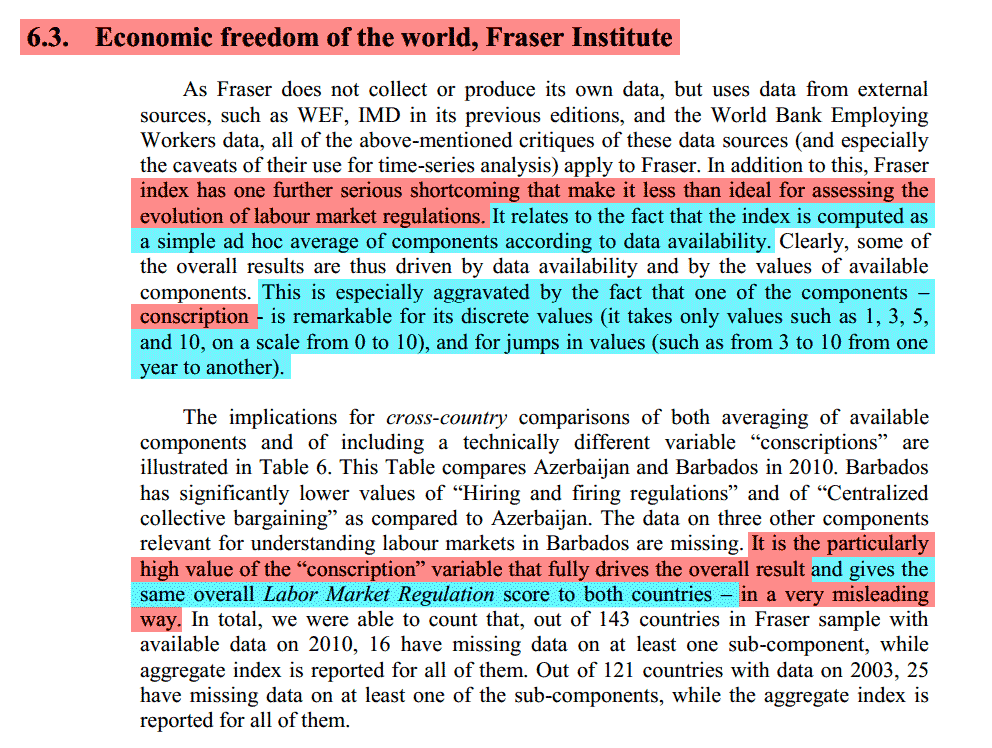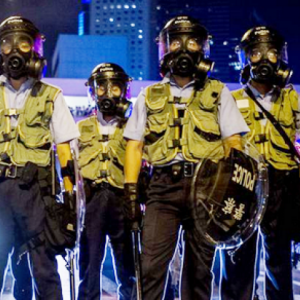
Fraser Institute declares Hong Kong freest place on earth in disputed economic index
The Fraser Institute announced Tuesday that Hong Kong is the most “economically free” place in the world on the heels of massive pro-democracy protests demanding free elections. That’s the conclusion of the Fraser Institute’s ill-timed release of its 2014 Economic Freedom of the World Report, an annual ranking that has come under sustained criticism for methodological flaws. But after days of bad […]
The Fraser Institute announced Tuesday that Hong Kong is the most “economically free” place in the world on the heels of massive pro-democracy protests demanding free elections.
That’s the conclusion of the Fraser Institute’s ill-timed release of its 2014 Economic Freedom of the World Report, an annual ranking that has come under sustained criticism for methodological flaws.
But after days of bad press, Hong Kong’s beleaguered administrators didn’t want to talk about any such concerns, issuing a statement welcoming the news.
“The Government today welcomed the Fraser Institute again ranking Hong Kong as the world’s freest economy,” the Hong Kong government said Tuesday, adding it “affirms the city’s steadfast commitment to free market principles.”
The right-wing think tank calls its global rankings the “world’s premier measurement of economic freedom,” using 42 variables in five broad areas to create an index. They include the size of government, legal structure and security of property rights, access to sound money, freedom to trade internationally, and regulation of credit, labour and business.
In other words, the weaker your labour laws and environmental regulations, for example, the better you do.
Fraser Institute doesn’t address methodological problems flagged by United Nations agency
In its 2014 ranking, the institute doesn’t address damning criticism of its Economic Freedom of the World index issued by the United Nations’ International Labour Organization. The agency slammed the institute on two separate occasions (see here and here) earlier this year.
In one scathing report published in June, the ILO’s Marya Aleksynkska and Sandrine Cazes stated that the Economic Freedom of the World index possessed a “strong conceptual bias” and is “very misleading” in places.
Here are some of the issues flagged by the ILO:
- Repetitive and overlapping indicators to measure economic freedom, though these were often included “without any apparent justification,” meaning “certain concepts were double-counted.” The ILO expressed doubt that the indicators looked at by the Fraser Institute actually “cover the topic of labour markets efficiency, regulations or institutions exhaustively, leaving aside other important aspects.”
- Using “different data sources for the same variable.” The ILO said that the “Fraser unemployment insurance component at some point was based on data from two different surveys.”
- A disclaimer in the report’s appendix pointing to the institute mixing and matching old and new components, leading the ILO to observe “this confounding of data series creates artefacts and may lead to wrong interpretations.”
- Cherry-picking, citing the use of “only some, but not all” of the data supplied by the World Bank’s Rigidity of Employment Index. Likewise, while the institute omitted a number survey responses relating to labour market efficency from the World Economic Forum’s Global Competitiveness Report, “only two were retained by the Fraser Institute.”
- Instances where the institute was found “averaging different types of data.”
- Including “military conscription” as an indicator of labour market regulations, despite having “the least apparent relevance to the degree of Labour Market Regulations.”
- The ILO points to one example where Barbados’ lack of military conscription boosted its ranking on labour market regulations above Azerbaijan (where men over the age of 18 are required to perform military service for a year to a year and a half) despite Barbados missing data on a number of components and where there was data, Barbados ranked below Azerbaijan. The ILO says it is “the particularly high variable of the ‘conscription’ variable that fully drives the overall results.” This is what that looked like:

 Photo: Amnesty International.
Photo: Amnesty International.
Our journalism is powered by readers like you.
We’re an award-winning non-profit news organization that covers topics like social and economic inequality, big business and labour, and right-wing extremism.
Help us build so we can bring to light stories that don’t get the attention they deserve from Canada’s big corporate media outlets.
Donate



